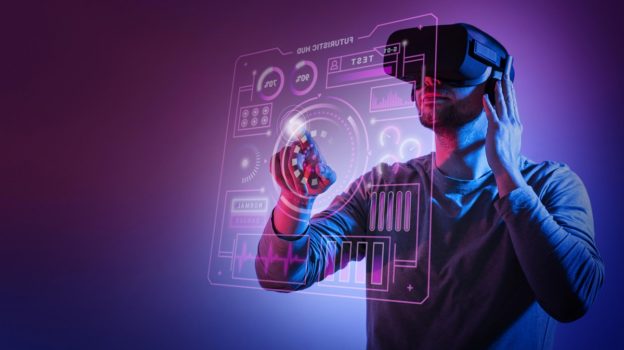Fashion companies embedding AI into fashion businesses could bring a cumulative increase in their cash flow than the slow adopters of digital technologies.
Artificial Intelligence is quickly becoming a game-changer in almost every business sector. Even the fashion industry has undergone a tremendous digital makeover, disrupting the design, marketing, and sales to streamline and augment the efficiency of operations. In 2021, fashion companies invested around 1.8 per cent of their revenue in technology and it is further projected that these companies will double their investment by 2030.
AI and other advanced technologies have already made inroads into the fashion industry. Its intuitive and data-driven prowess has enabled companies to enhance creativity and optimize their operations for optimum business performance. Additionally, the increased use of predictive analysis has created a competitive edge for fashion companies – in ensuring planet sustainability and providing exceptional customer satisfaction.
The potential of technology has become apparent in recent years as an aftermath of the pandemic. Fashion companies embedding AI into fashion businesses could bring a cumulative increase in their cash flow than the slow adopters of digital technologies. To maximize technology potential in business, fashion companies use new-age tech trends in unlocking various growth opportunities and make a real difference in the company’s performance.
Disruption in supply chain management
AI is known for its biggest impact on the optimization of end-to-end supply chain management processes. AI models are capable of storing and analyzing historic data to understand the lifecycle of the stock and bring efficacy to inventory management. With predictive information at their disposal, fashion companies can improve their inventory and sales levels – by making informed decisions about what to stock, when, and to whom. This plays a crucial role in waste reduction, traceability of the stock, and designing future sales roadmap.
Optimization of the design process
The growing arsenal of tech tools has exhibited their potential to hyper-personalize in the fashion industry – whether it is design or customer relationship. AI algorithms work on predictive analytics to understand customer preferences and popular trends in the industry. Based on the data, fashion companies can create designs personalized to the target market, reducing the chances of poor sales in the future. The market-driven insights open several avenues for companies to innovate and offer hyper-personalization for building long-term customer loyalty.
Augmentation of marketing campaigns
The shift in the fashion marketing landscape is taking place much faster than we anticipated. For instance, the use of virtual technologies by leading global brands has expedited the adoption of virtual sampling and virtual fashion shows inevitably post the pandemic. On the other hand, marketing teams are leveraging the use of AI algorithms and Generative AI models to design innovative fashion campaigns and content, with a special focus on virtual avatars and influencer outreach programs for every marketing channel. AI and other tech tools can recognize patterns and trends in the fashion industry that further help marketers to create robust marketing channels and sales funnels.
Improved sales and customer experience
With the accelerated adoption of e-commerce models across fashion houses, it becomes imperative to build a highly personalized and strong customer support service system. Today, AI chatbots with generative capabilities interact with customers to understand their queries and concerns. It has a stronger natural language processing capability to understand customer queries in numerous languages and provide personalized responses across different touch points – email, in-app chat, and brand’s earned channels like WhatsApp, Instagram, Facebook, etc. Improved customer service experience can increase sales conversions for fashion companies by keeping the conversation on with customers. Even after they have completed their purchase, fashion houses can offer them personal styling recommendations based on customers’ data available with the company.
Strategic moves to overcome barriers
Despite several notable benefits of AI in fashion, it raises the biggest concern for human labor and poses a risk to their jobs. AI algorithms are capable of handling and automating human-centric tasks. Fashion companies will have to draw a uniqueness to AI and technology adoption and act responsibly and ethically.
Furthermore, AI algorithm-generated data potentially drive design and marketing decisions. This can make fashion more homogenized and there is a risk of losing human touch and creativity in the process. So, what could be the final verdict?
AI has the potential to revolutionize the industry but businesses need to adopt the technology while addressing new challenges and concerns that can have a major impact on other human aspects. The balance between the benefits and drawbacks of AI is a matter of mindset that requires a radical shift in a way it drives growth and improves the bottom line.
https://www.financialexpress.com/industry/how-ai-tech-is-streamlining-global-trends-in-the-world-of-fashion/3129776/





